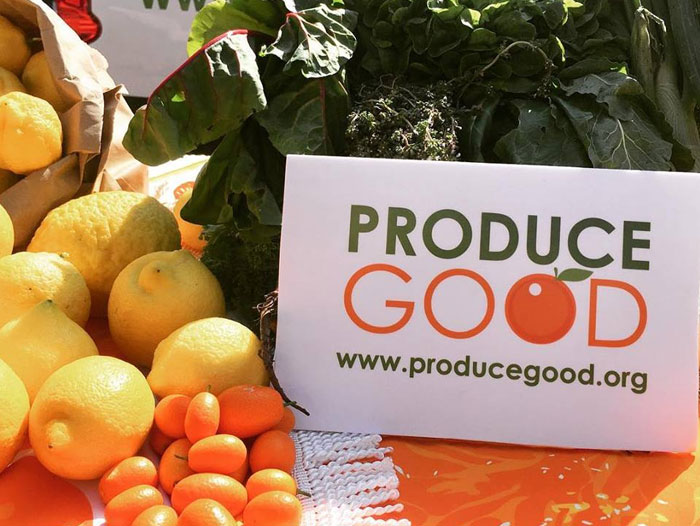U.S. EPA honors ProduceGood for leading food recovery efforts in San Diego County
May 13, 2019 | 3 min to read

ENCINITAS, Calif. – As part of the Winning on Reducing Food Waste Initiative, the U.S. Environmental Protection Agency (EPA) has recognized Encinitas, California-based ProduceGood for its outstanding efforts in food recovery. This is the first Food Recovery Challenge award received by the nonprofit organization.
“EPA is delighted to honor ProduceGood’s leaders and volunteers with this national award for their exceptional role in making fresh produce available to those in need,” said EPA Regional Administrator Mike Stoker. “We encourage all communities to consider partnering with businesses, growers and donors to redirect surplus foods away from landfills and on to the dinner table.”
ProduceGood diverts excess produce from its path to landfill and makes it available to people in San Diego County. In 2017, ProduceGood rescued 86,000 pounds of produce through 176 harvesting events, equal to 258,000 servings of fresh produce. Donated produce benefits food-insecure children and adults in the San Diego area.
“We are honored to receive our first EPA Food Recovery Challenge award for our work in 2017. Since then, we have doubled our output, and we look forward to future gains. Our volunteers stand on the front lines and distribute healthy, nutritious produce to our recipients. They also help prepare the small amount not fit for consumption for compost,” said Nita Kurmins Gilson, ProduceGood co-founder and Executive Director of programs and outreach. “We are truly reducing hunger and waste in San Diego every day.”
ProduceGood’s mission of gleaning excess produce is accomplished through relationships with 50 San Diego farmers and 70 backyard citrus growers. ProduceGood’s more than 900 community volunteers sign up for events every week to harvest, weigh, and crate the surplus food for distribution to local feeding agencies. In 2017, ProduceGood built its “Charitable Fresh Produce Provision Network” of San Diego agencies that either distribute produce or feed it directly to those in need.
EPA’s Food Recovery Challenge partners with over 1,000 organizations and businesses to prevent and reduce wasted food. The participants include groups such as grocers, educational institutions, sports and entertainment venues, restaurants and hotels. The program saves money, helps communities reduce hunger, and protects the environment by purchasing less, donating extra food and composting.
In 2017, Food Recovery Challenge participants prevented or diverted almost 648,000 tons of food from entering landfills or incinerators, saving participants up to $31.2 million in avoided landfill tipping fees.
President Donald J. Trump declared April Winning on Reducing Food Waste Month, and U.S. Department of Agriculture Secretary Sonny Perdue, EPA Administrator Andrew Wheeler, and U.S. Food and Drug Administration Deputy Commissioner Frank Yiannas announced a federal interagency strategy to address food waste. The agencies held an event at EPA headquarters to hear from state, local and community leaders and other stakeholders on how stakeholders can work together to reduce food waste.
For more information on sustainable management of food and the Food Recovery Challenge, please visit www.epa.gov/foodrecoverychallenge.
Learn more about EPA’s Pacific Southwest Region. Connect with us on Facebook and on Twitter.
